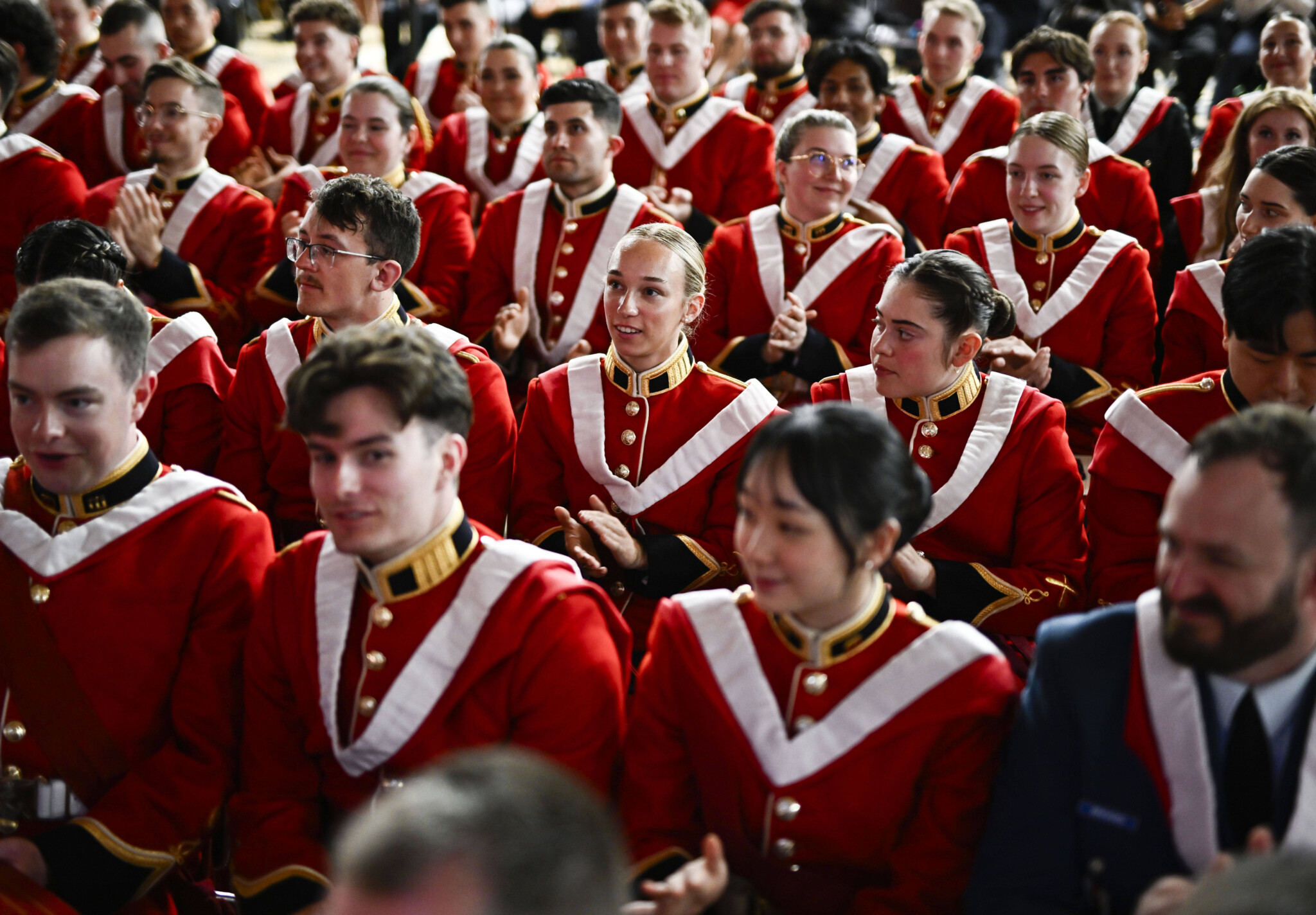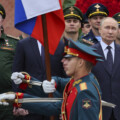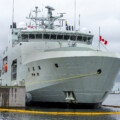Last month’s British election catalyzed a debate about the advantages and drawbacks of a policy of national service for young people. In particular, the British Conservative Party proposed twelve months of mandatory service for 18-year-old Britons in the military or other public institutions. A previous Hub article in favour of compulsory service provoked a similar debate.
But it is hardly a radical idea. Sweden has had youth military service since the start of the twentieth century. It now welcomes all genders and is widely viewed as a success.
Sweden’s selective, gender-neutral national service program screens 100,000 18-year-olds annually and ultimately chooses only 5 percent. The rigorous process includes medical, psychological, and physical evaluations, plus interviews to assess suitability. This thoroughness ensures a prestigious, competitive recruitment, yielding a capable and effective military force.
A mandatory national service program for young Canadians can help address critical needs in national security, community resilience, and career readiness.
Like Sweden, a Canadian program could also have selective mandatory service through a rigorous and fair process. Young Canadians could have two options: military service or community service with a civil society organization.
An independent federal agency, with its own board of directors and governance, could oversee the program. This agency would need strong partnerships with the Canadian Armed Forces, provincial governments, Indigenous nations, and other groups. Starting small, regularly iterating, and growing incrementally would ensure the program is cost-effective and impactful.
While there are some national service programs that already exist in Canada, like Katimavik, these are relatively small-scale initiatives, which do not have an emphasis on national security. A new federal agency would not be duplicative to existing efforts.
Enhancing young Canadians’ career readiness
Youth service programs are a game-changer for young people’s career readiness, offering invaluable skills and experiences that seamlessly translate into the workforce. A report by Voices for National Service and ICF, a global advisory and technology services provider, highlights that national service programs equip participants with essential competencies such as leadership, problem-solving, and teamwork.
These programs plunge young people into diverse environments where collaboration is key, often under challenging conditions, sharpening their ability to work effectively in teams and lead projects to success. Moreover, the real-world problem-solving abilities gained through these experiences are highly transferable across various professional settings.
For instance, a study of AmeriCorps alumni reveals that serving in their national volunteer service program significantly boosts participants’ employment opportunities. An impressive eight out of 10 alumni reported that AmeriCorps benefitted and advanced their career path, and 42 percent of those employed within six months of service found their job through a connection made in AmeriCorps.
Bolstering national security
Now, let’s think about the Canadian Armed Forces. They’re struggling with recruitment, facing demographic shifts, a competitive job market, and changing public perceptions of military service. Just recently, Defence Minister Bill Blair estimated the military is short up to 16,500 members and said the forces’ failure to boost recruitment is leading to a “death spiral.” A national service program could introduce more young Canadians to military careers, boosting enlistment rates. This would help fill recruitment gaps and build a versatile, ready-for-anything force.
A national service program could prepare Canada for natural disasters and other unknown calamities by ensuring a pool of trained individuals who could be mobilized quickly to respond to emergencies, thus enhancing national resilience and preparedness. Those who complete their service would become valuable additions to the military reserves. Even if reservists don’t always stay at peak readiness, they offer critical support during multiplying crises.
The Russian invasion of Ukraine and the broader geopolitical uncertainties underscore the necessity for robust national defence. Consider the potential of a catastrophic event, such as a Russian incursion into the Canadian Arctic. We need a prepared and resilient population to protect our country, and we cannot just assume the United States will protect us, especially if there are less friendly occupants in the White House. Moreover, for Canada to be taken seriously on the global stage, we need to be able to both defend ourselves and have offensive military capabilities. There’s a reason so many countries, including the United Kingdom, are seriously considering national service.
Strengthening community resilience
Civic engagement remains a challenge in Canada. A recent decline in volunteer participation highlights the critical need for revitalizing community involvement. Up to 65 percent of non-profit organizations face volunteer shortages.
A national youth service program would encourage young people to meaningfully give back to their communities by working for organizations that tackle challenges as diverse as our aging population, the housing crisis, and economic development. The program would also foster enduring civic engagement, as service program participants are more likely to volunteer after their service term ends.
Some might argue that mandatory service infringes on individual freedoms or could be met with resistance. However, exploring selective mandatory service can address these concerns while reaping significant benefits. Like in Sweden, selective service allows for a more targeted approach, identifying individuals whose skills and interests align with rising social needs. Focusing on selective mandatory service would allow Canada to uphold individual freedoms while still achieving the societal benefits of a national service program.
Implementing a national service program can enhance career readiness, bolster national security, and strengthen our communities. It’s time for more Canadians to serve and protect our country in our turbulent world.
Get The Hub’s latest news and commentary on WhatsApp. Click here.








